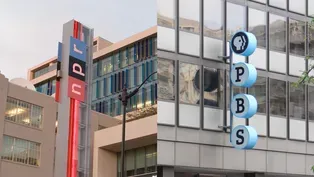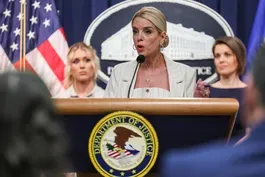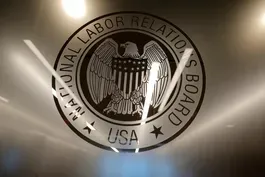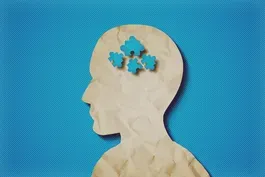
Researcher skeptical autism cause will be found by September
Clip: 4/16/2025 | 5m 11sVideo has Closed Captions
'Good science takes time': Researcher skeptical autism cause will be found by September
In a news conference on the rise in autism spectrum disorder, Health Secretary Robert F. Kennedy Jr. made no mention of vaccines and instead emphasized the government’s plans to study potential environmental factors. To help put Kennedy's pledge in context, Stephanie Sy spoke with Christine Ladd-Acosta of the Johns Hopkins Bloomberg School of Public Health.
Problems with Closed Captions? Closed Captioning Feedback
Problems with Closed Captions? Closed Captioning Feedback
Major corporate funding for the PBS News Hour is provided by BDO, BNSF, Consumer Cellular, American Cruise Lines, and Raymond James. Funding for the PBS NewsHour Weekend is provided by...

Researcher skeptical autism cause will be found by September
Clip: 4/16/2025 | 5m 11sVideo has Closed Captions
In a news conference on the rise in autism spectrum disorder, Health Secretary Robert F. Kennedy Jr. made no mention of vaccines and instead emphasized the government’s plans to study potential environmental factors. To help put Kennedy's pledge in context, Stephanie Sy spoke with Christine Ladd-Acosta of the Johns Hopkins Bloomberg School of Public Health.
Problems with Closed Captions? Closed Captioning Feedback
How to Watch PBS News Hour
PBS News Hour is available to stream on pbs.org and the free PBS App, available on iPhone, Apple TV, Android TV, Android smartphones, Amazon Fire TV, Amazon Fire Tablet, Roku, Samsung Smart TV, and Vizio.
Providing Support for PBS.org
Learn Moreabout PBS online sponsorshipAMNA NAWAZ: Let's delve further now into Secretary Kennedy's remarks from today.
Stephanie Sy has more.
STEPHANIE SY: Amna, in today's press conference, the health secretary made no mention of vaccines and instead emphasized the government's plans to study potential environmental factors that may lead to autism spectrum disorder.
For more, we're joined by Christine Ladd-Acosta with Johns Hopkins Bloomberg School of Public Health.
Christine, thank you so much for joining the "News Hour."
I understand your research focus is on how genes interact with the environment to affect our health.
So I want to play something Secretary Kennedy said today when talking about the dramatic rise in autism among children.
ROBERT F. KENNEDY JR.: We know it's an environmental exposure.
It has to be.
Genes do not cause epidemics.
They can provide a vulnerability.
You need an environmental toxin.
STEPHANIE SY: Secretary Kennedy really emphasized in his press conference today this idea of environmental toxins and he referred to anything from food additive to medicine to ultrasounds as being potential factors.
Over the decades, has there been enough research into those potential environmental factors?
CHRISTINE LADD-ACOSTA: It's a great question.
There has been some research and more recent years on environmental factors.
And by environment, I really mean anything outside of our genes.
And, to date, the science really points most strongly to several factors we have learned or environments, including preterm birth.
So individuals that are preemies have a higher likelihood of autism.
Pregnancies where moms experience pregnancy conditions have also been associated with risk of autism in their offspring.
And there have been some studies on chemical toxicants, things like the air we breathe and air quality and trying to understand whether that impacts autism.
Certainly, there are other environmental exposures that we do think need to be considered, and in particular in the context of a person's underlying genetic liability for autism.
STEPHANIE SY: Secretary Kennedy has said that, by September, we will know what has caused the autism epidemic and he says we will be able to eliminate again those exposures, referring to what he believes is environmental catalysts for autism.
Do you know anyone in your field that thinks that that is a realistic timeline?
CHRISTINE LADD-ACOSTA: So I think, many of us, we all want answers and would love to have those quickly.
I think to do really good science takes time.
And because autism is so complex and has such a broad range of symptoms that individuals experience, it's going to take time to really figure out which genes and which specific environmental factors influence autism symptoms across the spectrum and how different combinations of those come together.
And it's really important we don't lose sight of doing good, high-quality science of high integrity and not at the expense of time in a rush to get the right answers.
STEPHANIE SY: You spoke earlier about how a lot of the surge that we're seeing in autism cases may have to do more with how we're diagnosing autism, as well as awareness.
Kennedy took issue with that, taking pains today to say that those explanations deny what he considers an epidemic.
Do you think there is what he calls epidemic denial out there?
CHRISTINE LADD-ACOSTA: So I don't want to characterize what he said.
What we do know is that we used to diagnose things like Asperger's pervasive developmental disorder, and we have these really specific diagnostic names and conditions that with changes in the diagnostic criteria, now all of those separate conditions fall under this broader autism spectrum umbrella.
And so that alone, right, this broader umbrella and net, brings in individuals and increases the number of individuals with autism.
STEPHANIE SY: Does that fact make it less of a public health crisis or do we have a public health crisis on our hands?
CHRISTINE LADD-ACOSTA: There are a large number of individuals living in our communities with autism that have a wide range of needs, care needs and a range of symptoms they experience.
Many of them have other co-occurring conditions that impact their daily living and quality of life, that they want answers for how they can address those conditions to improve their quality of life.
And so I think there is a need for continued research in this area to address their needs.
STEPHANIE SY: Christine Ladd-Acosta with Johns Hopkins Bloomberg School of Public Health, thank you.
CHRISTINE LADD-ACOSTA: Thank you, Stephanie.
Activist supports Sudanese sexual violence survivors
Video has Closed Captions
Activist provides support for Sudanese refugees terrorized by sexual violence (9m 7s)
Deportation challenge morphs into executive power battle
Video has Closed Captions
Challenge to Trump deportations morphs into a battle over executive and judicial power (5m 42s)
A look at the efforts to slash public media funding
Video has Closed Captions
A look at the Trump administration's efforts to slash public media funding (5m 29s)
News Wrap: DOJ sues Maine over transgender athletes
Video has Closed Captions
News Wrap: DOJ sues Maine over transgender athletes (6m 7s)
NLRB whistleblower says DOGE may have caused security breach
Video has Closed Captions
NLRB whistleblower claims Musk's DOGE potentially caused significant security breach (8m 29s)
U.S. and Iran harden positions ahead of nuclear negotiations
Video has Closed Captions
Ahead of 2nd round of nuclear negotiations, U.S. and Iran harden positions (4m 14s)
What science shows about the rise in autism diagnoses
Video has Closed Captions
What research reveals about the rise in autism diagnoses and why vaccines aren't the cause (7m 16s)
Providing Support for PBS.org
Learn Moreabout PBS online sponsorshipSupport for PBS provided by:
Major corporate funding for the PBS News Hour is provided by BDO, BNSF, Consumer Cellular, American Cruise Lines, and Raymond James. Funding for the PBS NewsHour Weekend is provided by...


















